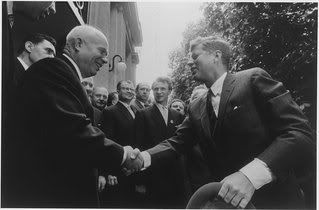This Week’s Evangelism: L. A. Times Festival of Books
On Saturday we’re going uptown to give the wealthy a fighting chance for Heaven at the L.A. Times Festival of Books. There are a ton of events. Just think how happy everyone will be when they get their Trillion Dollar Bill book mark! Meet at Hope Chapel at noon to carpool to the campus of USC. Call me at 310-374-4673 x. 121 if you’d like to meet us up there.
Next week:

Atheist Contributions to a more Peaceful, Cultured Society
Okay. Maybe I’ve been a little harsh on the atheists who visit here; I haven’t given them enough credit. I’ve focused on the negative maybe a little too much and haven’t given kudos to the positive achievements that radical unbelievers have brought to our society. Well then, in the spirit of mea culpa, actually, in the spirit of mea maxima culpa, let me report to you the latest developments in positive atheism.
A wonderfully giving group of students at the University of Texas at San Antonio handed out free magazines to fellow collegians on campus! That’s right. Members of the Atheist Agenda offered free pornographic publications to anyone who turned in their Bible. Their bright red signs covered in large black letters said: “FREE PORN” and “SMUT FOR SMUT. “We want to spread atheism and bring it more to the spotlight. We offer another alternative to people who might not fit in anywhere else,” explained Kyle Bush, the group’s president.
A big hand to the atheist’s contribution to literacy! Yay! (Read more here.)
In other news, Florida atheists fought against superstition by washing away a blessing placed upon a local highway by a religious group.
Read More